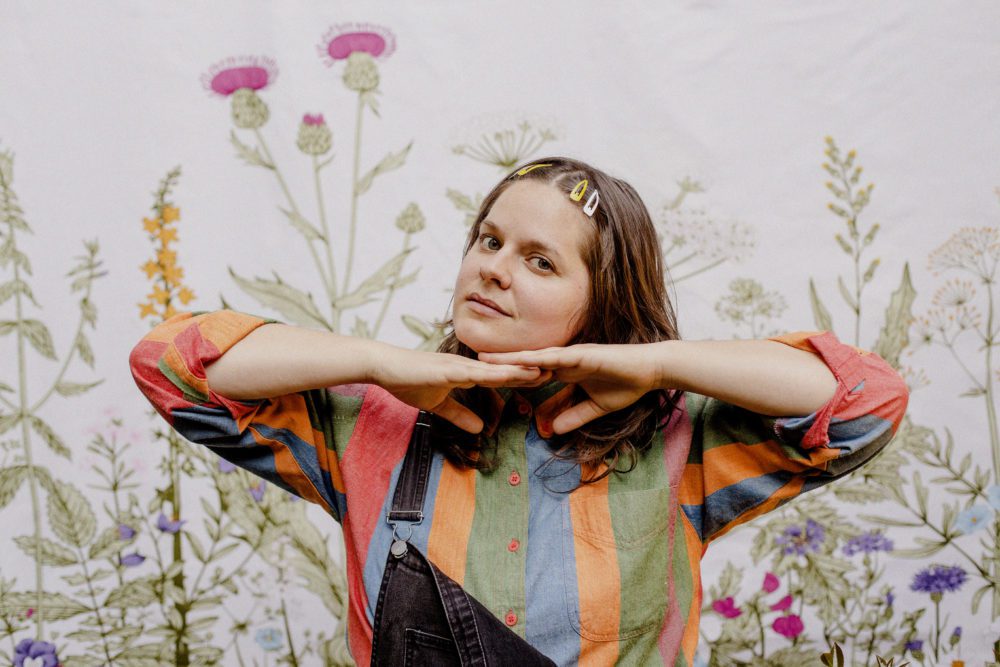

Ashley Wright was playing a festival when she heard about Rita for the first time. Rita wasn’t another performer on the bill or a mutual friend, but an alter-ego that had been emerging from Wright’s blackout drunkenness for years without her ever knowing. Someone who had met Rita the night before raved the next morning about how funny the persona was – “this buffet waitress who smokes two packs a day” – and when Wright asked friends about it they confirmed that Rita was no stranger to them, either. Rita lived in Ashley Wright’s body, but Wright was the only one not in on the joke.
“I was totally mortified. It’s a very surreal thing,” Wright says. “If I can have a whole other character that I have no memory of, what else am I capable of doing when I’m intoxicated? That’s the scary part for me.” Wright did what any good songwriter would do – she dissected those feelings of shame and embarrassment lyrically, and set them to music. Though it didn’t happen right away, once she sat down to examine her risky behaviors around alcohol consumption – to have a chat directly with “Rita,” as it were – the song just tumbled out of her.
Wright says her songs, which she performs under the moniker Earleine – a nod to the acquaintances she made while working anonymously as a civilian in a military training program – tend to either be extremely personal or more of an exercise in hyperbole, but never a combination of both. “Rita” was an exorcism, and ultimately an example of stark contrast between the using songwriting as a positive tool for unpacking complex emotions, versus the crutch of substance abuse, which Wright admits “always made things worse.”
When she performed the song live, it always had a heavy, mournful vibe; after all, the musical alter-ego, Earleine, is essentially killing off the blackout alter-ego, a murder ballad for the sober movement. But as a performer who often found that acoustic guitar pigeonholed her as an Americana artist, the sounds Wright heard in her mind veered closer to indie folk. So she enlisted the help of producer Saman Khoujinian, co-founder of Carrboro, North Carolina-based Sleepy Cat Records, to bring that vision to life. The result is a deceptively poppy, woodwind-laced take on a dark subject matter, in the vein of Third Eye Blind’s meth chronicle “Semi-Charmed Life,” though certainly not as dated.
Wright has always found an escape in music, but didn’t start playing guitar until she was 17, living in Tennessee just North of Nashville. She wrote songs secretly in her bedroom for years before performing at a talent show, which she likens to an out-of-body experience that christened her dedication to writing and performing. But her path from then on was pretty circuitous as she bounced from three semesters of college to playing covers in a retirement town, commanding army trainees with the codename Earl, and finally landing in the prolific North Carolina Triangle scene. She met Khoujinian at a local dive called The Kraken, ended up sending him some demos, and they eventually put together Earleine’s debut EP, out July 24.
Across four tracks, listeners get the brutal honestly of songs like “Rita,” thoughtful examinations of Wright’s frustrations as a woman raised in patriarchal Southern culture (“Less of the Same”), miminalist metaphors for dealing with anxiety and depression (“Let That River Roar”), and “Still Call,” which Wright calls the “token heartbreak anthem” on the EP, about her first civil, amicable, mutual “grown up breakup.” Like the oboe on “Rita,” there are unexpected, quirky flourishes throughout the four tracks that set it apart from genres the project might have been lumped in with in the past, making the debut effort distinctive – and promising.
Earleine has many more songs in her repertoire, but like so many aspects of life, the pandemic has put plans to record a full-length on hold. For now, Wright is focused on introducing “Rita” to the world – and kissing her goodbye. “If you make music that touches on personal topics, topics that might be considered taboo, [like] alcohol addiction, I feel like it’s important to put it out just to connect with those who might be feeling too embarrassed or too scared to talk about it,” Wright says. “I’m hoping, in putting out this EP, that I can reach people who can connect with it in some way, that it brings them some sort of solace, or comfort, or inspiration.”
Follow Earleine on Facebook for ongoing updates.

